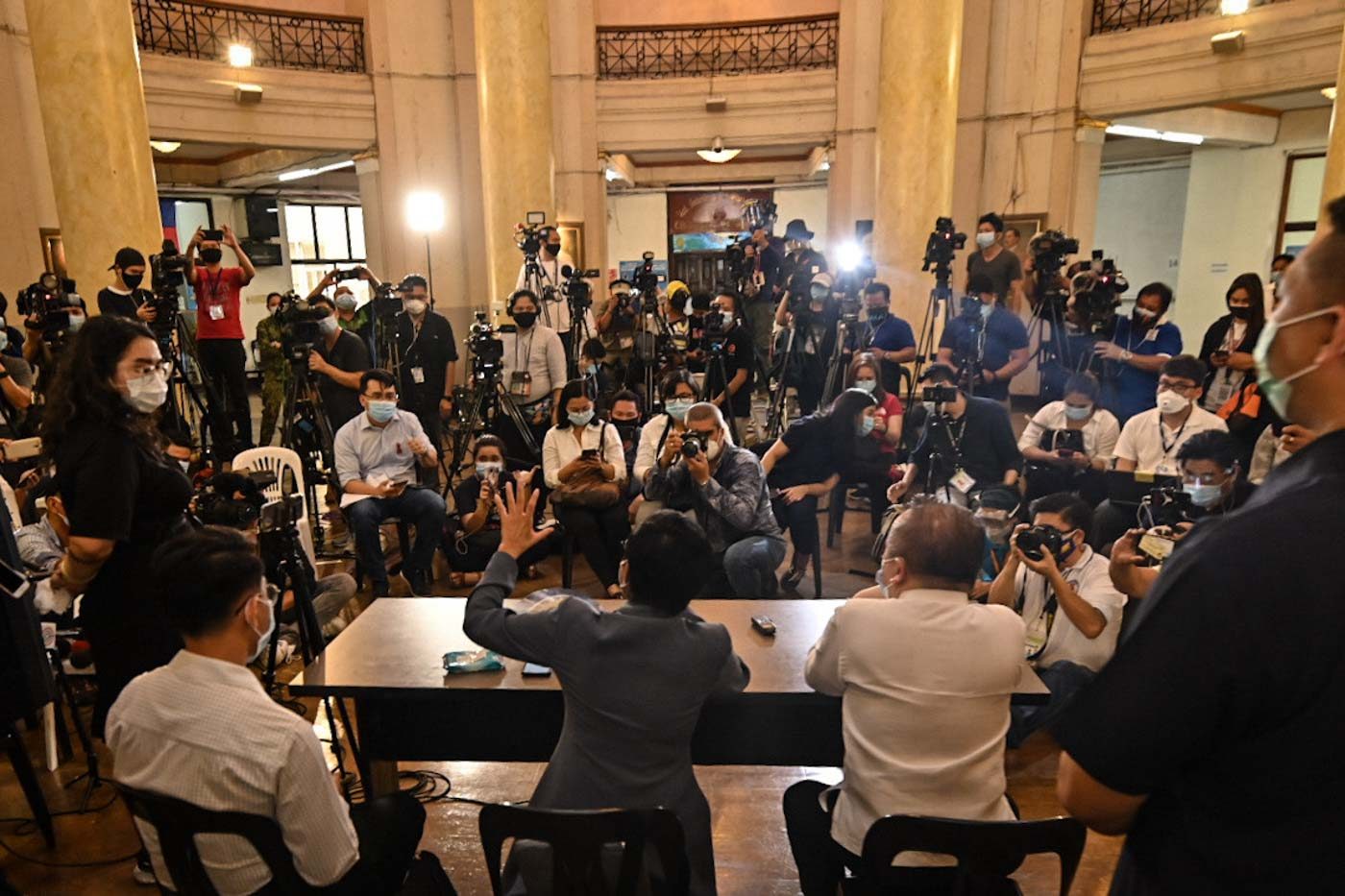SUMMARY
This is AI generated summarization, which may have errors. For context, always refer to the full article.

MANILA, Philippines – Different legal groups and experts agree that cyber libel prescribes only in 1 year, and not 12 years, which was the Department of Justice (DOJ) theory that was upheld by a court in Manila to be able to convict Rappler CEO Maria Ressa and former researcher-writer Reynaldo Santos Jr.
“We are of the belief that such decision is patently unconstitutional, and the reliance of the court on the prescriptive period sets a dangerous precedent,” said the Concerned Lawyers for Civil Liberties (CLCL) in a statement on Tuesday, June 16. The CLCL is a consortium of the most prominent legal groups in the country.
There were factual disputes to the case, such as the element of malice, but retired Supreme Court senior associate justice Antonio Carpio said the 12-year prescription period is the “overriding issue in the Rappler case.”
Carpio agreed that cyber libel must prescribe only in 1 year. (READ: Aquino’s contested cyber libel law gets new claws in ruling vs Rappler)
What’s the issue? Libel under the 1930s Revised Penal Code (RPC) prescribes only in 1 year, meaning, you can be sued for libel only within a year of publication.
The disputed Rappler article was published May 2012, which means complainant Wilfredo Keng had the right to sue only until May 2013. After Rappler corrected a typo in the story in February 2014, Keng then had the chance to sue until February 2015.
But Keng filed the complaint only in October 2017.
The cybercrime law was silent on the prescription period of cyber libel.
To be able to charge Ressa and Santos, the DOJ found the pre-war Act 3326, which lays out a general rule of prescription periods for special laws like the cybercrime law.
Libel under RPC is punishable by up to 6 years, but the cybercrime law imposed a penalty one degree higher, which raised cyber libel’s penalty to up to 12 years.
Act 3326 says that if special laws have penalties exceeding 6 years, crimes prescribe in 12 years.
Manila Regional Trial Court (RTC) Branch 46 Judge Rainelda Estacio Montesa upheld the DOJ theory, saying “precisely because a higher penalty is prescribed, cyberlibel is considered as a more serious offense.”
What do lawyers say? Carpio agrees with Far Eastern University Law Dean Mel Sta Maria in the latter’s opinion that ordinary libel’s one-year prescription period should be the same with cyber libel.
Sta Maria pointed out that when the Supreme Court decided the constitutionality of cyber libel in 2014, it said that “Cyberlibel is actually not a new crime since Article 353, in relation to Article 355 of the penal code, already punishes it.”
The SC further said: “In effect, Section 4(c)(4) above merely affirms that online defamation constitutes similar means for committing libel.”
“Because cyber-libel is not a new crime, then the one-year prescriptive period applies to it. Moreover, such prescriptive period was not changed by the new Cybercrime Law,” said Sta Maria.
Montesa said in her decision that “cyber libel punished under Cybercrime Law is an offense separate and distinct from the ordinary libel punished under Article 355 of the Revised Penal Code.”
“Dean Sta. Maria powerfully demolishes that here,” Carpio said.
This argument was already raised by Rappler lawyer, former Supreme Court spokesperson Ted Te, in an earlier Motion to Quash, but Montesa denied it in April 2019.
How to interpret prescription? Sta Maria said that because cyber libel “merely affirms an existing law, it does not create a new law.”
Opposition lawmaker Edcel Lagman, a human rights lawyer, said that Montesa should have followed the principle of nulla poena sine lege, or no penalty without a law.
“There should be no penalty without being specifically prescribed by law,” said Lagman.
Lagman said Montesa should have instead been guided by the Supreme Court case People vs Pacificador which says that “in the interpretation of the law on prescription of crimes, that which is more favorable to the accused is to be adopted.”
The National Union of Peoples’ Lawyers (NUPL) also pointed out a timeline of statutes which should have made Montesa realize that Act 3326 was already inapplicable.
Act 3326 was enacted in 1926. The RPC was enacted in the 1930s. In 1966, Republic Act 4661 was enacted to amend Article 90 in the RPC in terms of prescription for libel. What was once a 2-year prescription period for libel in the 1930s Article 90 RPC became one year in the 1966 RA 4661.
“In short, Act. No. 3326, in its entirety cannot be applied. Article 90 [as amended] should have been the basis for the determination of the prescriptive period for libel which is one (1) year. Hence, the case filed has already prescribed,” said the NUPL.
“The law should not be weaponized by those in power against those who are simply using their voices. Using the Cybercrime Law to crack down against media and the press not only silences the voices of the press, but also creates a chilling effect against citizens, rendering them afraid to speak up lest they, too, be charged with the crime of libel,” said the CLCL. – Rappler.com
Add a comment
How does this make you feel?
There are no comments yet. Add your comment to start the conversation.